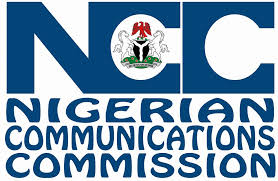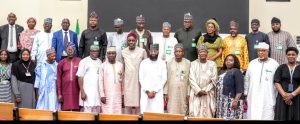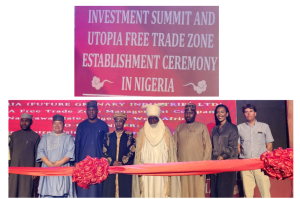NCC: Telecom Access Gap, N700bn Needed

The Nigerian Communications Commission (NCC) has disclosed that an estimated N700 billion is required to fill the gap in access to telecommunication services in the country. This was revealed by Umar Danbatta, the Executive Vice-Chairman of NCC, when he appeared before the House of Representatives Committee probing the commission over the alleged failure to provide mobile telecommunication networks in rural and underserved areas.
According to Danbatta, as of 2013, there were 207 clusters of access gaps that affected 37 million people in Nigeria. However, he said that progress had been made in reducing the clusters in rural, unserved, and underserved areas of the country. He explained that the number of Nigerians in the clusters had reduced from 37 million to 31 million in 2019.
The NCC’s revelation comes at a time when the Nigerian government has been making efforts to bridge the digital divide and improve access to telecommunication services in the country. This is because access to affordable and reliable telecommunication services is critical for socio-economic development, especially in the rural and underserved areas.
While Nigeria has made significant progress in expanding its telecommunications infrastructure, the country still faces challenges in providing access to quality services in some rural and underserved areas. This has resulted in a digital divide that exacerbates the inequalities in the country.
The NCC’s estimation of N700 billion to bridge the gap in access to telecommunication services is a significant amount that requires a multi-stakeholder approach to address. It is a call to action for the government, private sector, and development partners to work together to mobilize resources and deploy innovative solutions that can expand access to quality telecommunications services in rural and underserved areas.
The government can play a critical role in creating an enabling environment that attracts private sector investment in telecommunications infrastructure development in rural and underserved areas. This can be done through policy and regulatory reforms that promote competition, investment, and innovation in the sector.
Private sector players can also play a critical role in expanding access to telecommunications services in rural and underserved areas. This can be achieved through partnerships with the government, community-based organizations, and other stakeholders to deploy innovative solutions that address the unique challenges of providing telecommunications services in rural and underserved areas.
Development partners can support the government and private sector in mobilizing resources, technical assistance, and capacity building to address the digital divide in the country. This can be done through the provision of grants, concessional loans, and technical assistance to support the deployment of innovative solutions that can expand access to telecommunications services in rural and underserved areas.
The NCC’s estimation of N700 billion to bridge the gap in access to telecommunication services in Nigeria is a call to action for all stakeholders to work together to address the digital divide in the country. The government, private sector, and development partners must collaborate to mobilize resources and deploy innovative solutions that can expand access to quality telecommunications services in rural and underserved areas.









